Ranking the most powerful consoles in history is pointless, as we all know the latest will (probably) be the greatest. Still, what happens if we turn the tables so that even 8-bit systems can compete with the PS5 or Xbox Series X in our top ten list? That's why we'll rank the most powerful consoles relative to their strength on the launch!
10. Famicom
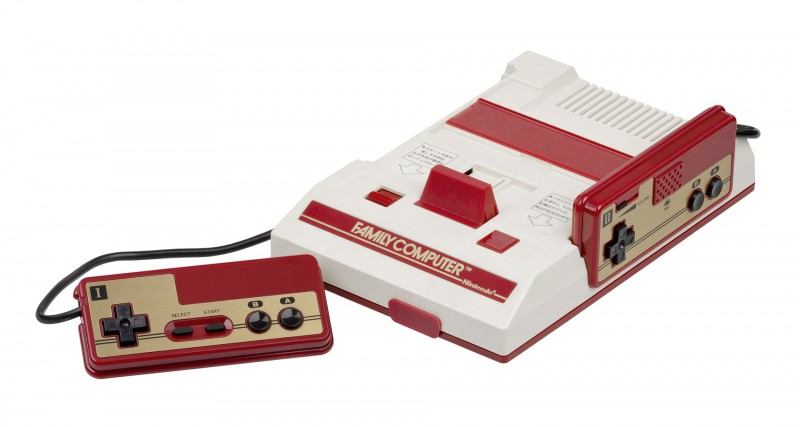 Famicom was a revolution in many aspects
Famicom was a revolution in many aspects
| Hardware strengths: Picture Processing Unit enabled fast scrolling | |
| Best-looking games: Super Mario Bros. 3, TMNT II The Arcade Game | |
| Main rival: Sega Master System | |
| Did it beat it? Yes, resoundingly | |
Console infoHey, we never said that the Japanese-only systems won't count! Yet, if Famicom is basically the Japanese version of NES, why are we excluding NES? To answer that, look at their release dates. NES arrived in North America at the end of 1985, and by then, its hardware was nothing special. Furthermore, computers such as the newly introduced Amiga 1000 were already far ahead.
However, Famicom is a whole different world! Its debut was two and a half years earlier, in July 1983. Its 1.79 Mhz processor and a custom Picture Processing Unit were cheap and powerful. Yet, Famicom was a powerhouse compared to the still popular Atari 2600 or even ColecoVision and Commodore 64 released only a year earlier! At the time, fast-scrolling games were impossible on many consoles and computers, but not on Famicom!
9. PC Engine
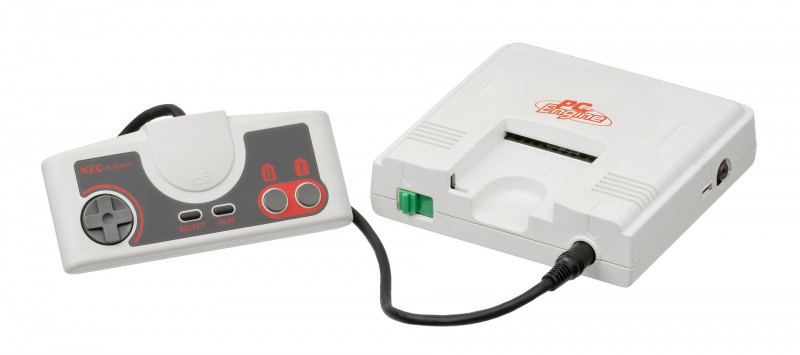 PC Engine was so close to Genesis in terms of power
PC Engine was so close to Genesis in terms of power| Hardware strengths: Color palette, big sprites | |
| Best-looking games: Street Fighter II', Excellent Neo Geo ports | |
| Main rivals: Sega Mega Drive, Super Nintendo | |
| Did it beat them? Surprisingly, it beat Sega Mega Drive in Japan | |
Console infoReleased in Japan in October 1987, PC Engine started the 16-bit generation of home consoles, even though it used a modified 8-bit CPU! Still, it was a system much closer to Mega Drive/Genesis than NES. Furthermore, it was even better in some segments than Sega's offering since it could display almost 500 colors simultaneously against its rival's 61.
While the system never had a particularly strong library of games, some proved that it could compete with Sega and Nintendo. Unfortunately, the console arrived in North America almost two years after its original release as TurboGrafx-16. By then, Sega was already there with Genesis, and the war was over before it began.
8. Sega Mega Drive
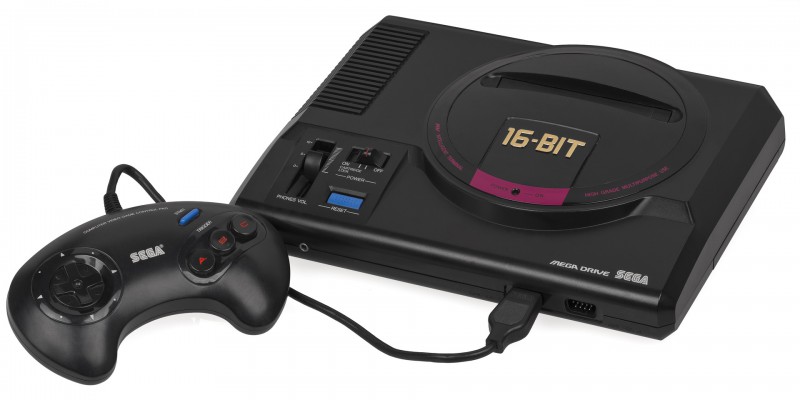 Do you remember the stories about blast processing on Mega Drive/Genesis?
Do you remember the stories about blast processing on Mega Drive/Genesis?| Hardware strengths: Fast CPU | |
| Best-looking games: Vectorman, Mickey Mania, Virtua Racing | |
| Main rivals: Super Nintendo, PC Engine | |
| Did it beat them? Yes and no | |
Console infoIn the eighties and the nineties, it was a common practice that the Japanese versions of consoles were introduced before the rest of the world got them a year later. So again, we're listing the Japanese Mega Drive, not the Sega Genesis. Available in October 1988, Mega Drive was the first proper 16-bit video game system. Moreover, it was far more powerful than the NES, which dominated the market then. The ultra-fast Motorola 68000 was even more potent than SNES CPU, although Nintendo introduced its console two years later!
Mega Drive was also better than the Amiga line of computers, judged by arcade ports, which always looked more attractive on Sega's console. Later, games like Vectorman, Comix Zone, or Virtua Racing reached the visual standards that everyone thought were impossible. That's why we give it a slight edge over the PC Engine.
7. Xbox Series X
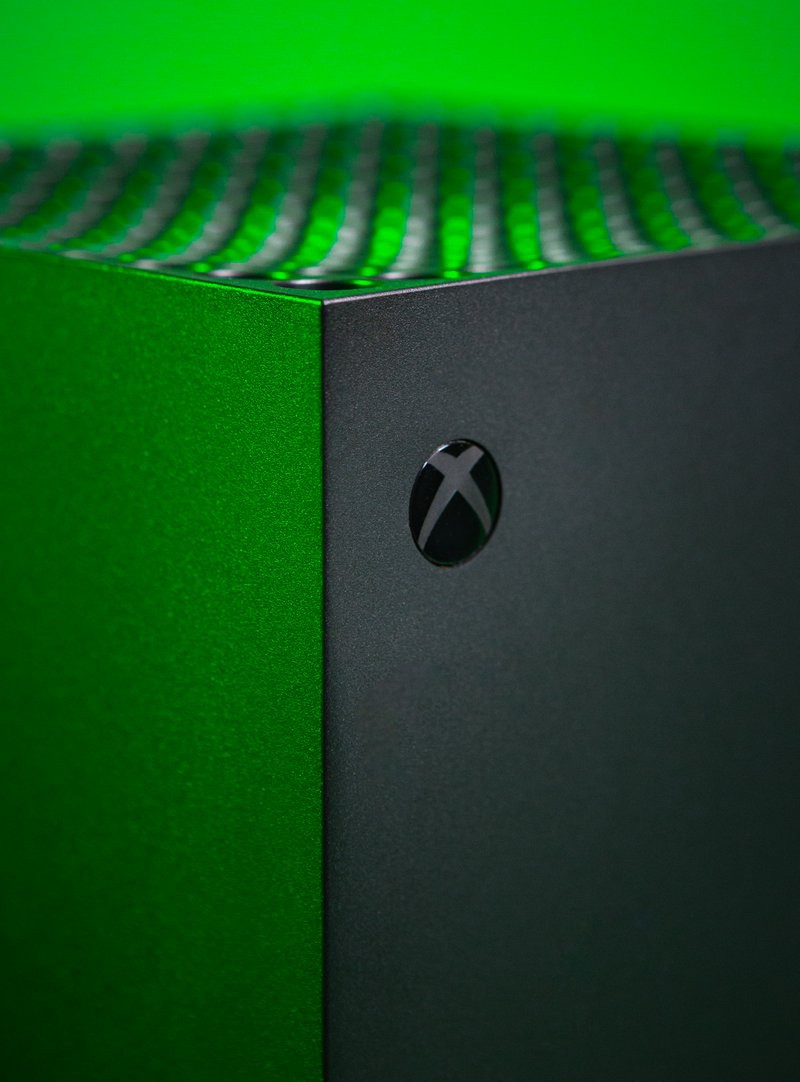 Xbox Series X is the most powerful ninth-generation console (Photo: Billy Freeman/Unsplash)
Xbox Series X is the most powerful ninth-generation console (Photo: Billy Freeman/Unsplash)
| Hardware strengths: Powerful CPU and GPU | |
| Best-looking games: Forza Horizon 5, Gears 5, Flight Simulator | |
| Main rival: PlayStation 5 | |
| Did it beat it? Not nearly | |
Console infoAs the Xbox One was less powerful than PS4, Microsoft wanted to dominate with the Xbox Series X. Even though it shares the initial $500 price tag with PS5, Series X has better hardware, with only its SSD lagging. When released at the end of 2020, this system could easily compare with expensive gaming PCs, as it's capable of 4K resolution and ray tracing in games like Forza Horizon 5.
The thing is that Microsoft sold Xbox Series X below its cost production, making it a must-buy for many. In practice, the best games for the system mostly look a bit better than on PS5, offering a more stable frame rate or higher resolution. The difference is not massive, but maybe console-exclusive games and the best gaming TVs will make it more apparent.
6. Nintendo 64
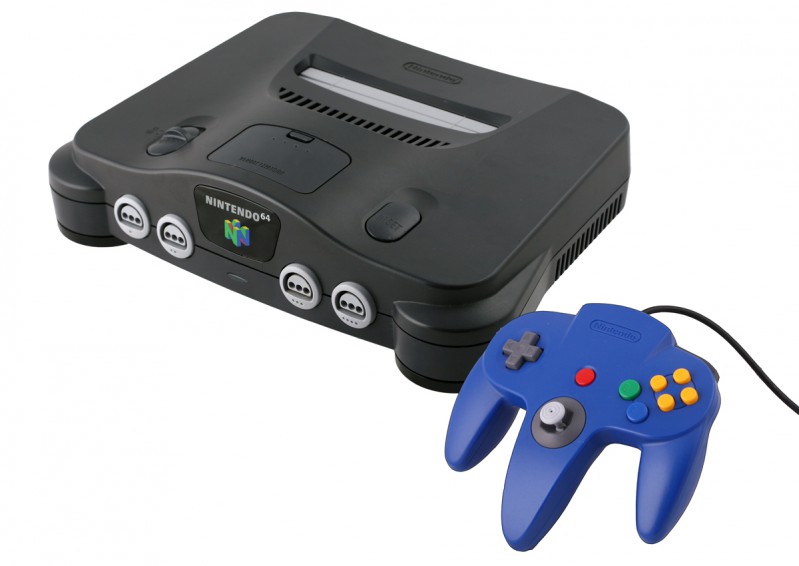 Nintendo 64 introduced modern 3D graphics
Nintendo 64 introduced modern 3D graphics| Hardware strengths: Texture filtering, special effects | |
| Best-looking games: Super Mario 64, World Driver Championship, Conker's Bad Fur Day | |
| Main rivals: PlayStation, Sega Saturn | |
| Did it beat them? It beat Saturn but couldn't compete against PS | |
Console infoNintendo 64 is a very controversial platform regarding sheer graphics power. Still, not having it in our top ten would be a crime, as this was the console that introduced advanced graphic effects. Before N64, bilinear filtering wasn't even on PC, nor was anti-aliasing, Gouraud shading, or alpha blending. Thus, even the early games like Super Mario 64 or Wave Race 64 looked stunning! Plus, the system was released in North America in September 1996, only a few months after the Japanese premiere.
So, why didn't we rank N64 higher? Because Nintendo was "smart" to use cartridges for games instead of CDs. The problem was that titles were so limited with space that developers often had to use awful low-res textures. Next to it, PlayStation and Sega Saturn games looked ultra-sharp! There is no console in history so restricted by the media it uses.
5. Dreamcast
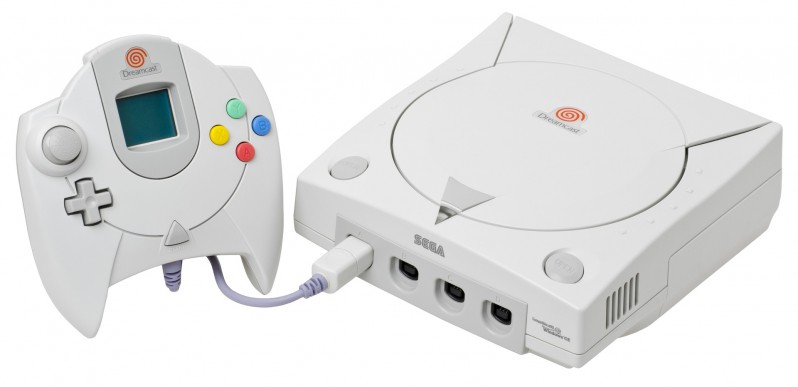 Dreamcast could compete against PlayStation 2
Dreamcast could compete against PlayStation 2| Hardware strengths: High polygon count, advanced effects | |
| Best-looking games: Soul Calibur, Dead or Alive 2, Metropolis Street Racer | |
| Main rivals: PlayStation 2, GameCube, Xbox | |
| Did it beat them? It finished dead last | |
Console infoSega's last console opened the sixth generation of gaming systems, which also featured PS2, GameCube, and Xbox. Introduced in Japan at the end of 1998, the platform was cheap and powerful, selling for only $199. In its first year of release, Dreamcast waged wars against the PlayStation and Nintendo 64 but was almost infinitely better than both. Compared to Nintendo's platform, the most significant difference was a much higher polygonal count, support for 480p resolution, and clean textures.
Soul Calibur shocked the world, and the system wasn't far behind Sony's PlayStation 2, which was released about 18 months later. If we ranked consoles based on their power-to-price ratio, Dreamcast would be on top with Famicom! The reason for its quick decline was a lack of games. It was such a disaster that Sega finally gave up and moved to software waters.
4. PlayStation
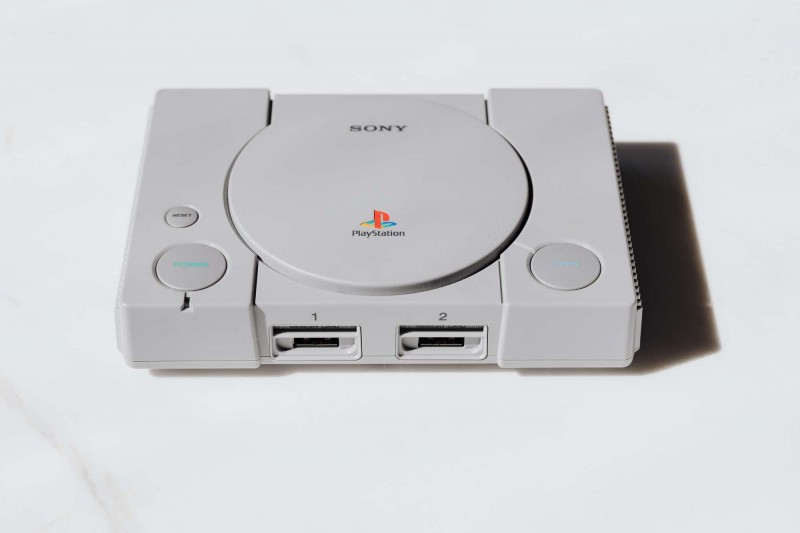 PlayStation made 3D gaming what it is today
PlayStation made 3D gaming what it is today| Hardware strengths: Excellent polygonal handling | |
| Best-looking games: Tekken 3, Gran Turismo 2, Castlevania: Symphony of the Night | |
| Main rivals: Sega Saturn, Nintendo 64 | |
| Did it beat them? Yes, easily | |
Console infoWhen Sony planned the first PlayStation console, they wanted to make a 2D powerhouse. That all changed once they witnessed Virtua Fighter, Sega's polygonal arcade fighter. Introduced in Japan before the end of 1994, PlayStation was easy to program and had an attractive price but also robust hardware. Compared to earlier systems like 3DO, it was a much more advanced machine and topped Sega Saturn.
PlayStation was even on top of PC for a couple of years before the introduction of 3D accelerators. Even then, many were impressed with games such as Gran Turismo or Tekken 3. The console also introduced advanced graphic effects, including full transparency, and could decently handle sprites. Just look at the beauty of Castlevania: Symphony of the Night! Additionally, we can finally play some of the best Japanese-only releases, thanks to numerous fan translations.
3. Xbox 360
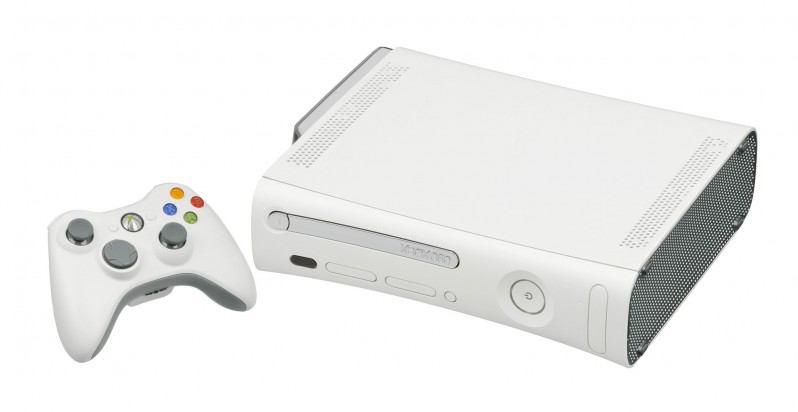 Xbox 360 is still the best console from Microsoft
Xbox 360 is still the best console from Microsoft| Hardware strengths: First HD console | |
| Best-looking games: Project Gotham Racing 4, Gears of War series, Forza Horizon | |
| Main rivals: PlayStation 3 | |
| Did it beat it? Almost | |
Console infoMicrosoft did a fantastic job when it released Xbox 360 worldwide near the end of 2005. This was the first seventh-generation console, which arrived a year before PlayStation 3. Everything about the system was genuinely next-gen, proven by the impressive-looking first wave of games. Project Gotham 3 was the star, but even sports games and multiplatform releases looked way ahead of everything, even on PC.
For the next decade, almost every multiplatform release was better on the Xbox 360 than on PS3. System exclusives were particularly strong, with impressive titles from Halo, Forza Motorsport, and the Gears of War series. Unlike PS3, developing for the Xbox 360 was easy, and this was the first HD console.
2. Xbox
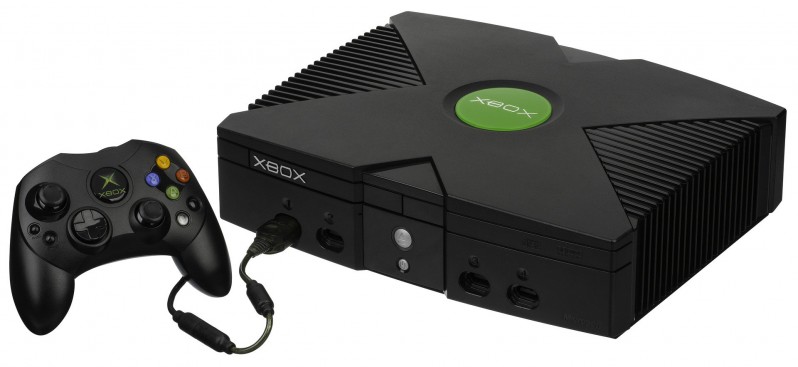 Mighty Xbox was like a powerful PC
Mighty Xbox was like a powerful PC| Hardware strengths: Internal HDD, powerful CPU and GPU | |
| Best-looking games: Ninja Gaiden, Dead or Alive 2 Ultimate, Chronicles of Riddick | |
| Main rivals: GameCube, PlayStation 2 | |
| Did it beat them? Barely beat GameCube, but way behind PS2 | |
Console infoHistory taught us that having the strongest console doesn't mean it will win the generation. Still, when Microsoft decided to enter the market, it wanted only the best. Xbox combined a powerful Intel CPU with Nvidia GPU, essentially a GeForce 3. Plus, the system came with a hard drive, giving it a serious edge over its rivals. Weighing 8.5 pounds (almost 4 kg), Xbox certainly looked impressive. Gamers of a certain age might even remember a story about a guy shooting the console, only for a bullet to ricochet!
Anyway, the Xbox was as powerful as the top-notch gaming PC. Still, it could produce even more impressive games, as it didn't have a resource-hogging Windows on top of it. It sounds almost impossible, but the system supports 720p and 1080i in many titles if you have component input on your TV. Multiplatform games released on every platform at the time were nearly always the best on the Xbox. Unfortunately for Microsoft, PlayStation 2 still sold seven times better.
1. Neo Geo
 There's still no better to experience arcade at home!
There's still no better to experience arcade at home!| Hardware strengths: Handling a massive amount of sprites | |
| Best-looking games: Garou: Mark of the Wolves, Metal Slug 3, Last Blade 2 | |
| Main rivals: Sega Mega Drive, Super Nintendo | |
| Did it beat them? No, but it was never meant to | |
Console infoRanking the systems was challenging, but we always knew that Neo Geo would be our number 1. Initially released in 1990 only as a rental unit, the platform offered arcade-quality graphics far ahead of what Genesis and SNES could do. Its 2D power was so impressive that even PlayStation and Saturn struggled to handle the best Neo Geo games like Metal Slug or The King of Fighters. Neo Geo displays 4096 colors simultaneously, including enormous 380 sprites on screen. Plus, have you ever seen its cartridges? They are beasts that could hold more than 700 megabits of data! Compare that to SNES and Genesis, which could handle no more than 50 megabits.
However, such power came at a considerable cost. Neo Geo sold for $599, each game costing at least $200! So yeah, you could get a Sega or Nintendo system for the price of a game! Still, Neo Geo is highly regarded among the gaming community and is sought after, with some titles regularly selling for thousands of dollars!
Even though the most powerful consoles aren't guaranteed to sell well, these top ten systems are classics, often immortalized in video game books. They set new standards and moved the industry toward what it became today.
Which of these consoles are your favorites, and do you own them? What are some of the most visually stunning games you've played on them? We are dying to hear your thoughts in the comments!
Photos: Pexels, Pixabay